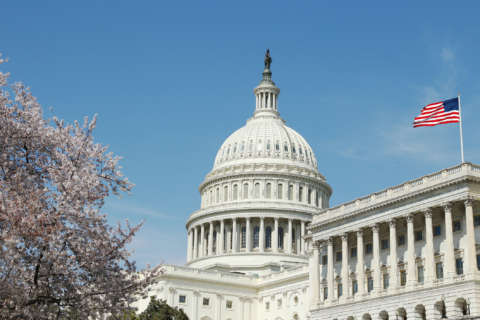WASHINGTON — Disparate rulings on whether Virginia violated federal law by drawing state House and congressional district maps based on race might pave the way for a grand decision from a higher court.
The latest ruling from a special three-judge panel, issued Thursday, threw out a Democrat-backed challenge to Virginia’s House of Delegates district lines. State Republican leaders say the lines, and those that shape the 3rd Congressional District that a similar federal court panel found to be unconstitutional, are legal.
“Today’s decision validates our consistently held view that the House (of Delegates) districts were drawn in accordance with the Constitution, all state and federal laws, and in a fair and open process,” House Speaker Bill Howell said in a statement Thursday.
In the Congressional boundaries case, the court is expected to redraw the lines of Rep. Bobby Scott’s district in Southeast Virginia after lawmakers failed to take draw a new map during a special session this summer.
The judges found that lawmakers packed too many black Virginians into Scott’s district, diminishing their voting power elsewhere in the state.
Brian Cannon, Executive Director of One Virginia 2021, wants Virginia to adopt an independent redistricting commission so sitting lawmakers would have less say on crafting their own districts and picking the citizens they would represent.
“It was a choice the court had between calling this political gerrymandering or racial gerrymandering, both of which should be illegal, but only one of which is,” Cannon said. “And the courts chose this was political gerrymandering, which, while it’s an antithetical aspect of our democracy, it is still perfectly legal.”
The Republican-led House of Delegates has blocked bills that would implement some type of nonpartisan redistricting, but Cannon thinks the odds are good that this changes before new lines are drawn based on the 2020 census.
“I think this is similar to the campaign finance reform movement 15 years ago where it went from an inside baseball issue that nobody knew a lot about or cared a lot about to the hallmark issue of whether our politicians are ethical or not,” he says.
The two rulings from the three-judge panels on the Congressional district lines and House of Delegates district lines could be appealed to the Fourth Circuit Court of Appeals in Richmond or to the U.S. Supreme Court.
Cannon’s group has backed a separate lawsuit in state court that challenges the House of Delegates district lines on a different basis: that the lines do not meet the state constitution’s requirement that districts be compact.
“The compactness requirement was meant as a check against the gerrymandering and the shenanigans that go on when politicians are entrusted with this, so the compactness standard does mean something, it’s just poorly defined at this point,” Cannon says.
“There’s a lot going on in the legal community, but the ultimate goal of making political gerrymandering illegal and then eliminating the conflict of interest that politicians have when they draw their own lines, those ultimate two goals aren’t going to be met through the courts they’re going to have to be met through the General Assembly,” he adds.
Howell says in the statement that the lawsuit has cost Virginia hundreds of thousands of dollars even before any appeals.
“We will continue to defend the validity of the House districts and remain confident they will withstand legal scrutiny,” Howell says.






